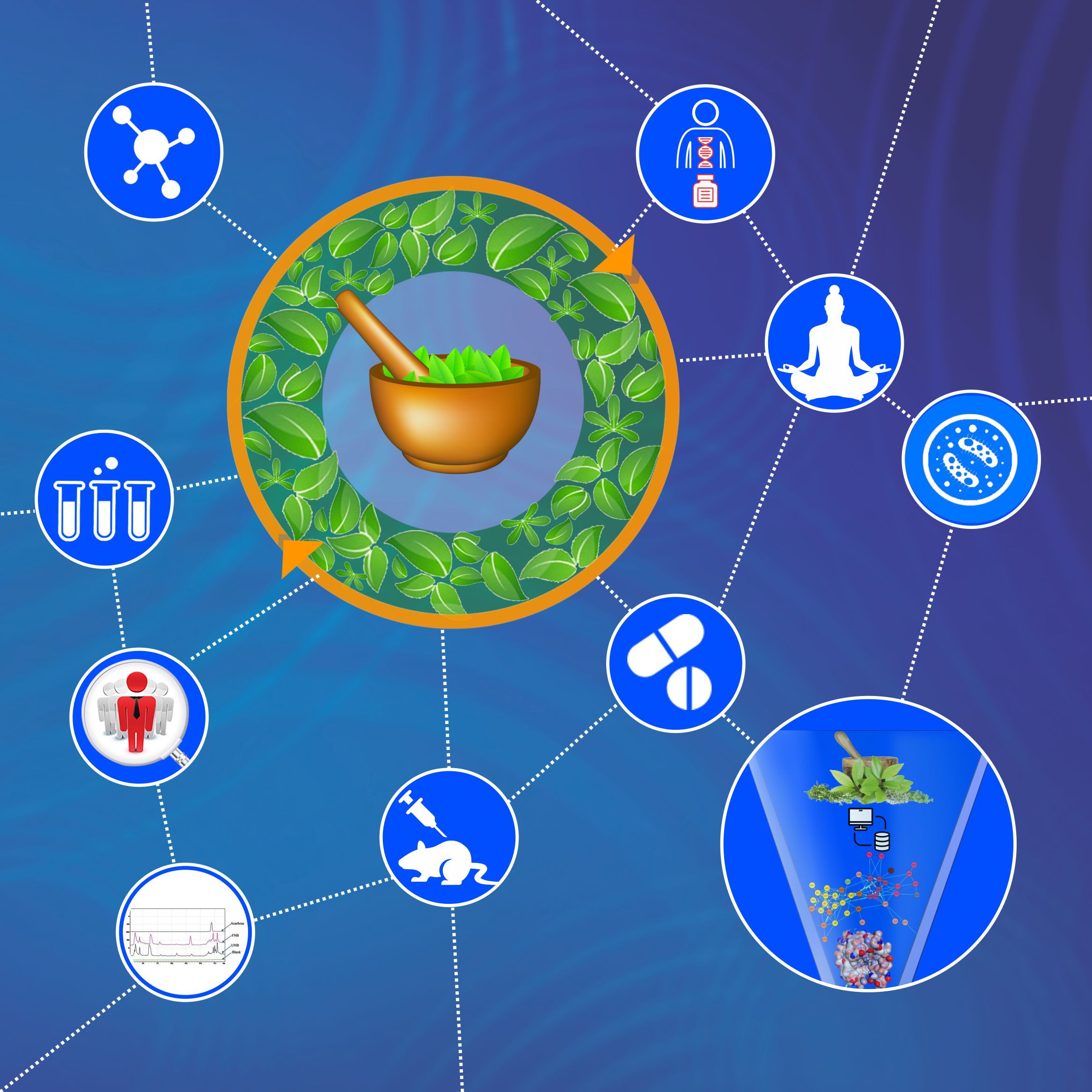Our Courses

At present, there is a growing interest in integrative health, complementary medicine and natural drug development. An introduction to Indian knowledge systems like Ayurveda, its value and relevance to modern biomedical science is important for students of health and biomedical sciences to explore new research avenues. For capacity building and human resource development in this sector, CCIH and the team of AYUSH CoE have developed interdisciplinary courses.
This course reviews and analyses the philosophy and progress of biomedicine from Hippocrates to Osler. The course discusses the concepts and principles of Evidence-based medicine and newer approaches like systems biology and integrative health. This course provides basic concepts of health and wellness with an introduction to the concept of complementary medicine with a primer on Ayurveda and Yoga. The course draws various concepts of disease prevention and health promotion from Ayurveda and Yoga through simple interventions of lifestyle, daily activities, diet, relaxation and meditation. The course discusses the importance of personalized approaches and advocates a fundamental shift in mindset from today’s illness-disease-drug-centric curative therapies to person-health-wellness-centric integrative approaches for health.
Course Highlights:
Syllabus:
Credits: 5

Trained doctors and dieticians are often left without an answer when they face tough questions and feedback during nutrition counselling. This is primarily due to the fact that modern dietetics does not provide knowledge on various aspects of Indian dietary habits and culture. Ayurveda has a rich treasure of knowledge in food science and can offer simple solutions to several conditions. It focuses on disease prevention and health promotion through dietary changes according to season, age, disease, profession etc. Ayurveda food science offers a truly personalized dietary approach unlike modern methods and this makes it unique and suitable for individual patient needs. Integrating Ayurveda dietetics with modern knowledge and practice has an exciting potential to bring the best to our patients.
Course Highlights:
Syllabus:
Credits: 6

The Indian traditional medicine system- Ayurveda practices herbal formulations for thousands of years. However, the molecular mechanism of these drugs remains unexplored. In this scenario, the integration of drug discovery and bioinformatics with the network pharmacology approach will give a new perspective and larger acceptance to Ayurveda. Network pharmacology utilizes advancements in computational biology and systems biology to generate networks of the interaction of drugs and their molecular targets. The innovative approaches can also enrich modern pharmacology with new drug scaffolds, leads and methods for rational formulation design based on traditional knowledge systems like Ayurveda.
Highlights:
Syllabus:
Credits: 6

Ayurveda is one of the longest evolving ancient sciences for healthy and harmonious life. It is quite modern and new millennium in its holistic approach to body, mind, and spirit. Due to its rich and deep epistemology, it can also provide a broader systemic framework to understand structural research data emerging from biomedical sciences. Recent research in Ayurveda has shown new paradigm-shifting approaches for robust evidence that would be globally path-breaking. Many pragmatic applications have emerged through new scientific methods. This course introduces the basic concepts and enriches the foundation for contemporary approaches to evidence-based Ayurveda. The course links the importance of traditional knowledge with the various research initiatives and provides an overview of the uniqueness of Ayurvedic biology vis-à-vis Life Sciences.
Course Highlights:
Syllabus:
Credits: 6

This course will involve classroom teaching/ learning, video lectures, guest lectures, online interactions, self-assignments, and group discussions. Generally, conceptual grasp and problem-based learning with instructional design approaches will be adopted. Throughout the course, the faculty will provide interesting concepts, problems, examples, illustrations, success stories, relevant case studies and conceptual diagrams. Students will be given reading materials, discussion papers and seminars.
These courses can be taken by any graduate/post-graduate/research students from life sciences, biomedical sciences, pharmaceutical, medical, and paramedical disciplines as an add-on or optional course. Individuals with an interest in traditional medicine systems from any educational background can apply.
General admission rules of the University will be applicable. This course is offered to students from any department or college of the university. Students will have the flexibility to choose any one or more units.
The final written examination will be conducted as per university rules. Emphasis will be on continuous assessment through tutorials, assignments, quizzes, seminars, group discussions and journal club activities. Weightage will be given for active participation, and self and peer assessment.
For more details, contact us 
Copyright © Savitribai Phule Pune University, School of Health Sciences, Pune. All Rights Reserved.
[Best viewed in IE 10+, Firefox, Chrome, Safari, Opera.]
:::| powered by dimakh consultants |:::